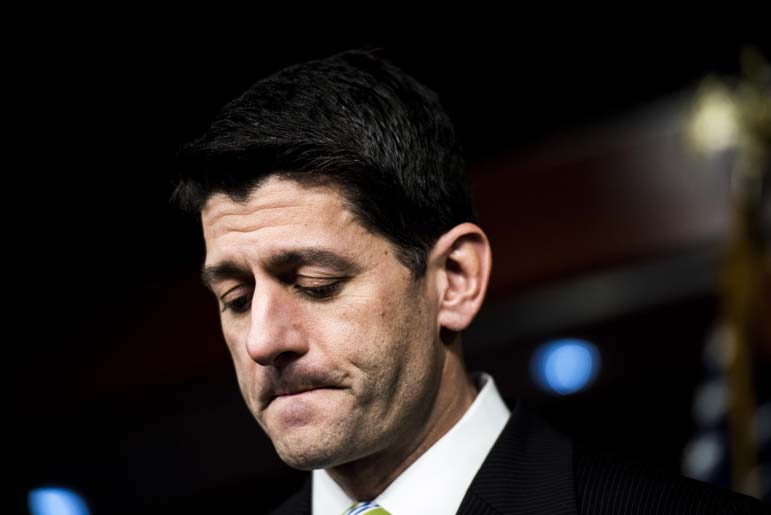 Washington Post photo by Melina Mara
Washington Post photo by Melina Mara
The plan to replace Obamacare with a new bill crafted by House Speaker Paul Ryan has failed, and embarrassingly so. And that failure is part and parcel of a larger failure of the Republican-led Congress to push an agenda in the new administration.
Talking to a friend at lunch not long ago, he expressed his amazement that the House and Senate leadership didn't have bills "lined up like airplanes on a runway" ready to take off in the new year. I was surprised, too.
It's not like the need to do something about Obamacare was a surprise. Republicans have been promising to repeal it for most of a decade. And it's not like Obamacare was popular or successful. Premiums are rising, providers are dropping out, and costs are going up. It's true that the Obamacare bill, pushed through on a procedural technicality that avoided a filibuster but left it impossible to fix at the time, was a mess. It's also true that the legislation was drafted, and the regulations implementing it were designed, in part to make it hard to undo.
Nonetheless, the Republican inability to deliver a bill that could get a majority in the GOP-led House is a colossal failure, and pretty much undercuts its entire reason for being. For years the congressional GOP leadership failed to deliver on promises to constituents, and offered the excuse that it couldn't do anything without control of the White House. Well, they've got that, so what's their excuse now? And where are the bills on infrastructure, on tax reform, on free speech?
The congressional GOP's failure to deliver on its promises is one of the things that led to the election of President Trump. Now they're still failing. What comes next?
When Obama turned out not to be quite the miracle-working messiah that some of his fans thought he'd be, Democratic pundits started producing thumb-sucking pieces to the effect that America had become "ungovernable." And I suppose that's one lesson that could be drawn from this disaster.
But in fact, America is being governed pretty well at the state level, mostly by Republicans, and they don't seem to have the problems that the national GOP is facing in Congress. As Charles C.W. Cooke writes in National Review, "At the state level, the GOP has been remarkably effective at ushering in reform over the last seven years; at the federal level, by contrast, it has been able only to hold the line." And I'd say that's a charitable assessment.
It's true of course, as Cooke notes, that the GOP has been in control in the states for longer, while it's been less than 100 days since Trump was sworn in as president. But it's also true that the national politicians seem more hidebound, more risk-averse, less energetic than those at state levels. As Matthew Continetti notes, they put legislative priorities ahead of the country's. In essence, they let the Senate parliamentarian and the Congressional Budget Office undo the results of the 2016 election.
Is this a matter of personnel or of structure? That is, are Ryan and Senate Majority Leader Mitch McConnell just bad at what they do, so that replacing them would solve the problem? Or is the real problem the constellation of interest groups in Washington, a web of special interests (to use Mancur Olson's phrase) that makes real progress impossible? Or is it something else?
One thing that's different at the federal level is that the major news media have much more impact on national politics than they have on state politics: State legislators rarely have to worry about what The New York Times, The Washington Post or NBC News has to say about their issues.
And while they have local media to consider, those are usually less monolithically left-leaning and less influential. (Indeed, the reduced influence of the Democrat-favoring national media out in the states may explain why the GOP has done better in state, local, and congressional races than in national races over most recent elections). But is that enough to explain it? I'm not sure.
Regardless, something's wrong in Washington. Trump's a quick study, so maybe he'll figure out a way to salvage the Obamacare debacle. But regardless, the ineptitude of our congressional leaders seems unlikely to change anytime soon. That's bad for Trump, but it's worse for America.
Comment by clicking here.
Glenn Harlan Reynolds, a University of Tennessee law professor, is the author of The New School: How the Information Age Will Save American Education from Itself and is a columnist at USA TODAY.


 Contact The Editor
Contact The Editor
 Articles By This Author
Articles By This Author